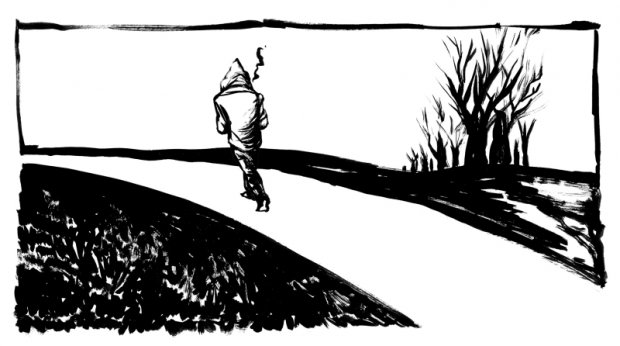
Alexander, Jean Carlos, Gustavo and Daniel did not know each other, but shared a similar history: they were between 21 and 30 years old when they were murdered by drug traffickers, according to witnesses. The study of the one thousand deaths that took place in Curitiba between 2010 and 2013 carried out by Gazeta do Povos reporters shows that men involved with drugs in that particular age range were the most common victims of homicides.
Drugs are not always the main motive behind crimes, but a majority of the victims are drug users or dealers. This situation was found in 562 out of 1,000 homicide cases. These inquiries usually are carried out like any other, but due to some factors, the resolution rate of homicides related to drug is lower.
When narcotics are involved, the police has more difficulties to interview witnesses, due to the fear of reprisals. There are on average 3.5 witness statements against 4.1 when the case does not involve drug. Another problem to solve the crime is the lapse of time between the crime and the moment the police first interview a witness who can deliver an anonymous statement. In cases related to drugs, the first testimony is made 97 days on average after the crime. The average for murders who do not involve drugs is much shorter: 63 days.
The use of material evidence such as ballistic examinations, fingerprints and cell-phone analysis, also is lower when cases involve drugs: they represent 13% of the 562 inquiries. In inquiries which do not involve drugs, material evidence amount to 20% of the cases.
IndictmentDue to all the reasons listed above, police indicted a suspect in only 9.2% of the drug-related homicide cases. Considering all cases, this rate goes up to 15%.
The inquiries of the four individuals mentioned in the beginning of the article are still opened and none of them has a suspect despite the fact that the police interviewed several witnesses who provided the names of potential suspects. Daniel owed money to traffickers and his mother as well as an anonymous witness delivered the name of the supposed author of the murder. Gustavo was killed about a month after surviving a murder attempt.
In the reports, names of criminals involved in the murder were mentioned. Jean Carlos was a drug user and his father had several times paid his debt to traffickers. Alexander´s father reported that the son used and sold drugs and provided the police with the names of three suspects who may have had killed the son.
Lack of investigationAccording to researcher Luis Felipe Zilli do Nascimento from the Federal University of Rio de Janeiro, it is impossible to give the same treatment to drug-related crimes. "Behind this big shadow that is drug trafficking lay homicides ranging from passion crimes to gang wars, to conquer drug corners. We need to distinguish and take a deeper look at each particular case." His research suggests that the root of these crimes should be investigated more in depth as their resolution should contribute to reduce not only the number of murders but also other crimes that take place in the city. The state needs to present in violent area, reports the policeGeographical analysis of crime is one of the strategies used by police authorities. The General-Commander of the Military Police of the State of Paraná, Colonel Roberson Luiz Bondaruk, as an expert on the topic, says that areas with little public lights, abandoned land slots, are more likely to be the scenes of violent crimes. "In neglected areas, either by the dwellers or by the authorities, criminals know that the risk of being denounced is lower."
According to Bondaruk, the most needing places need better access to every type of public services. "Recurrent crime does not result from looser policing. It has a strong relationship with the environment." Yet, when there is no urban planning, police needs to be more present in these poorer areas, therefore leading to more frequent police round ups, he says.
In March 2012, the State government created Paraná Unit for Safety (UPS) aiming at improving safety and public services in areas most affected by crime. There are currently ten units in Curitiba, all located where most crimes occur. "The goal is to develop a system of social sustainability. We first establish policing. Then every other basic public service has to be established so as to show that these areas belong to the citizens as well," he explains.
A national issuePolice chief Rubens Recalcatti, who has been serving as the head of the Homicide Unit for the past two years, claims that a more efficient action from the public authorities is needed to reduce the number of homicides.
According to him, it is a national issue. "The country does not move forward on basic issues such as education and health. These are actually getting worse."Prosecutor Marcela Marinho Rodrigues, from the Police Inquiry and Crimes Against Human Life Office, shares this opinion. According to her, repression is important but it cannot solve crime itself. To her, the state needs to act to create a stable social structure to provide support for every family.



